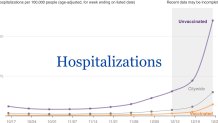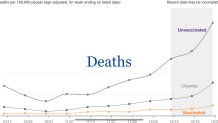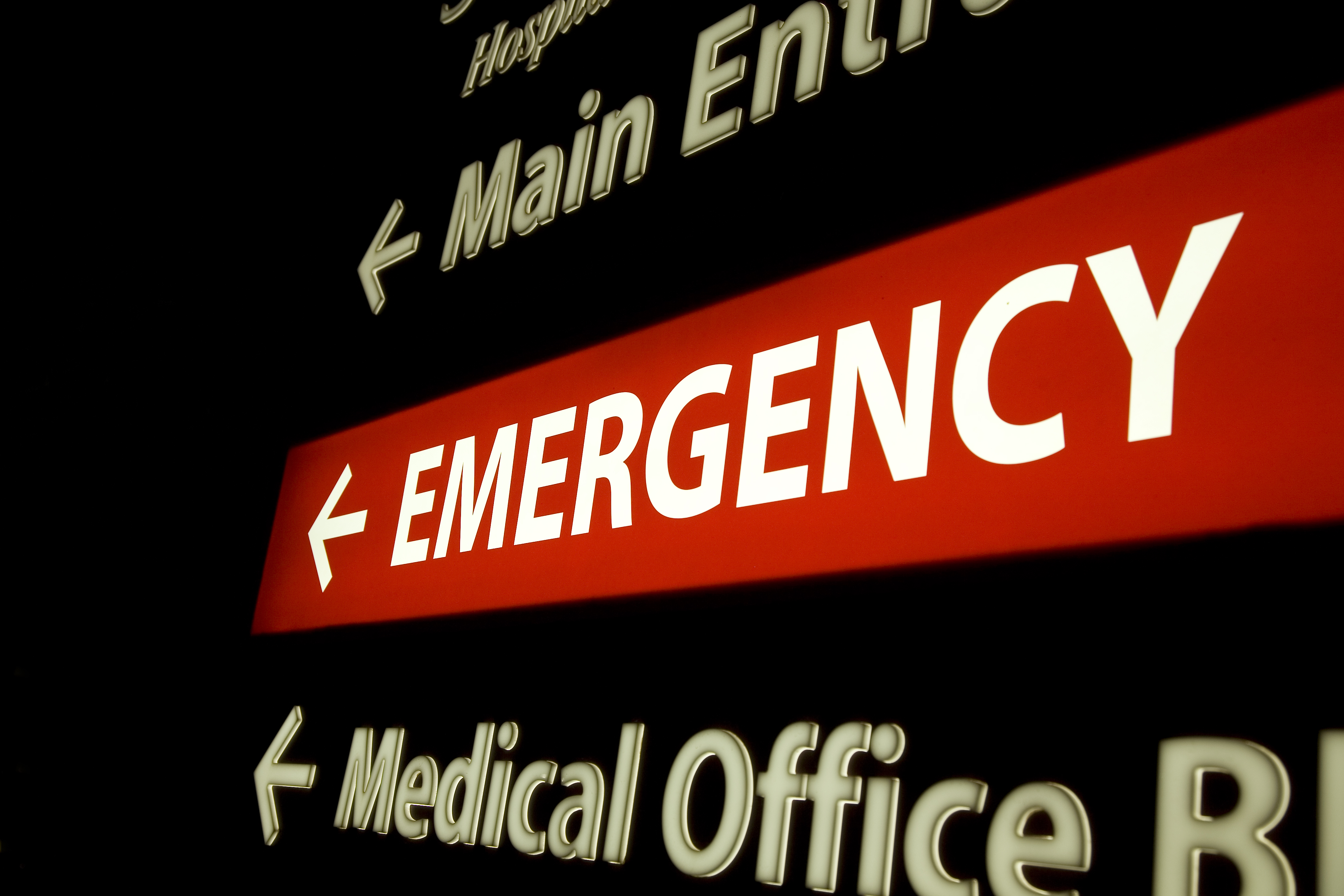A day after New York City's top elected official and health expert declared the ferocious omicron variant-fueled viral wave to be in retreat, a noted Manhattan emergency room doctor who has been documenting his experience throughout the COVID pandemic provided a detailed analysis of the data to underscore the point.
Dr. Craig Spencer, who vaulted to Twitter fame during the city's Ebola scare in 2014 and has been sharing his thoughts on omicron over the last month or so, said Wednesday all signs point to the end of the omicron wave in New York City.
He also said recent data clearly shows the "vastly different experience for vaccinated and unvaccinated New Yorkers" during the surge based on the three most critical COVID indicators: cases, hospitalizations and deaths.
First Up, Cases
Get Tri-state area news and weather forecasts to your inbox. Sign up for NBC New York newsletters.
Spencer acknowledged the heightened and highly publicized rate of breakthrough infections with the omicron variant, saying it might be easy to forget how much vaccines do lower the risk of getting infected, even if they're not quite as effective against this particular strain as they have proven to be against others.
Even breakthrough infection risk dropped over the last month, recently released New York state data shows, which provides further evidentiary support to the idea the five boroughs are well on the other side of the omicron peak.
COVID infection rates among fully vaccinated people peaked the week of Dec. 27 at around 261 cases per 100,000 fully vaccinated residents but declined to 219.4 cases per 100,000 residents in the latest week of data. That's a 16% decrease.
Infection rates for those same two periods for unvaccinated people were rates of 1,982.5 per 100,000 (the week of Dec. 29, the same week the breakthrough rates hit their 261 high) and 1,706.3 per 100,000 the latest week of data. That clearly shows declining risk for even the unvaccinated, who still remain almost eight times more likely than fully vaccinated New Yorkers to be infected, according to the state.
Next, Hospitalizations
As Spencer put it, the power of vaccination is "clear and dramatic" when it comes to these more severe cases.
"Vaccines remain incredibly effective at keeping people out of the hospital for COVID. And my own observation is that unvaccinated patients getting hospitalized are generally sicker overall, more likely to need oxygen," Spencer tweeted.
He shared a chart from the city's health department to illustrate the point.

The state's latest breakthrough infection data underscores that point, too. Increases in hospitalizations lag increases in cases, which is why the state's latest data set from Jan. 3 doesn't yet capture any decline in hospitalization rates.
The difference in terms of hospitalization risk for the fully vaccinated and the unvaccinated is as clear at the state level as it is at the city level, though.
Breakthrough hospitalizations hit their highest mark so far the week of Jan. 3, the latest data set, at 5.79 per 100,000 fully vaccinated residents. The hospitalization rate for the unvaccinated also hit its apex at that point, but that high (74.61 COVID hospitalizations per 100,000 unvaccinated New Yorkers) marks a 13-fold risk increase as compared to hospitalizations among the vaccinated during the surge.
Omicron Variant: More Coverage
Lastly, Deaths
Spencer says nothing has been more effective at lowering the likelihood of dying from COVID than vaccines, despite all the tools, protocols and treatments that have emerged to fight back the pandemic over these last two years.
"The stark difference in NYC data attests to that," Spencer tweeted.
The sustained impact of vaccination when it comes to COVID outcomes, from the lower-risk investigations to the more severe cases that require hospitalization to the ultimate worst outcome of death is Spencer's takeaway from the data, he says.
"Even with omicron’s ability to evade immunity, the vaccinated are still less likely to get infected. And their risk of hospitalization and death are MUCH lower," he tweeted. "The data are clear. And align with my experience as a frontline provider. The vaccines are still amazing."




